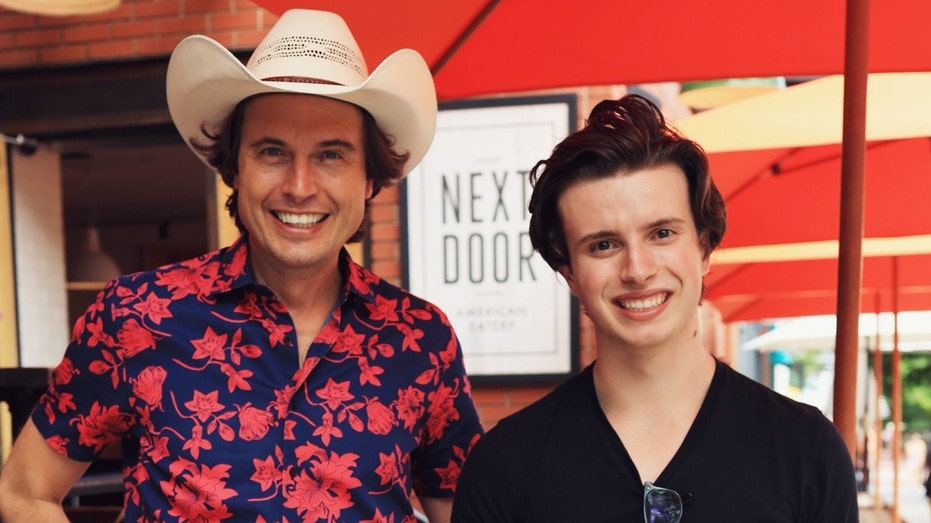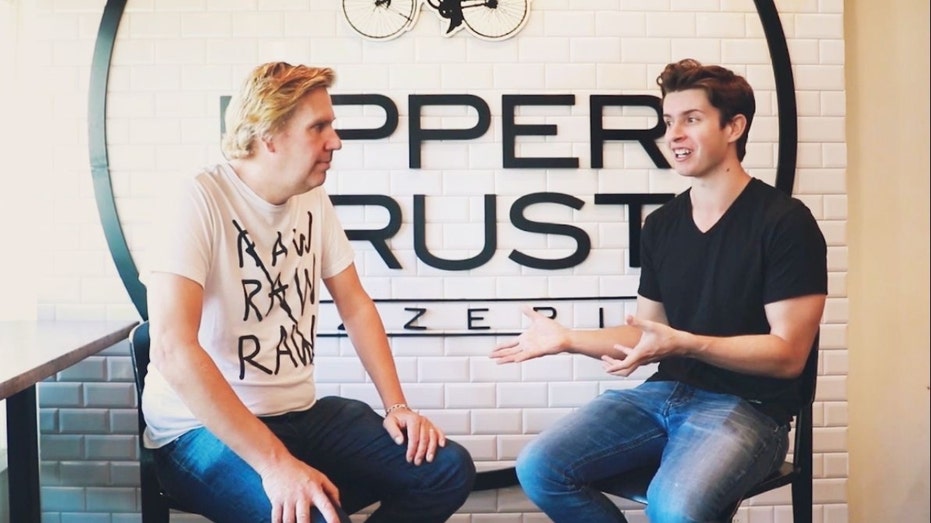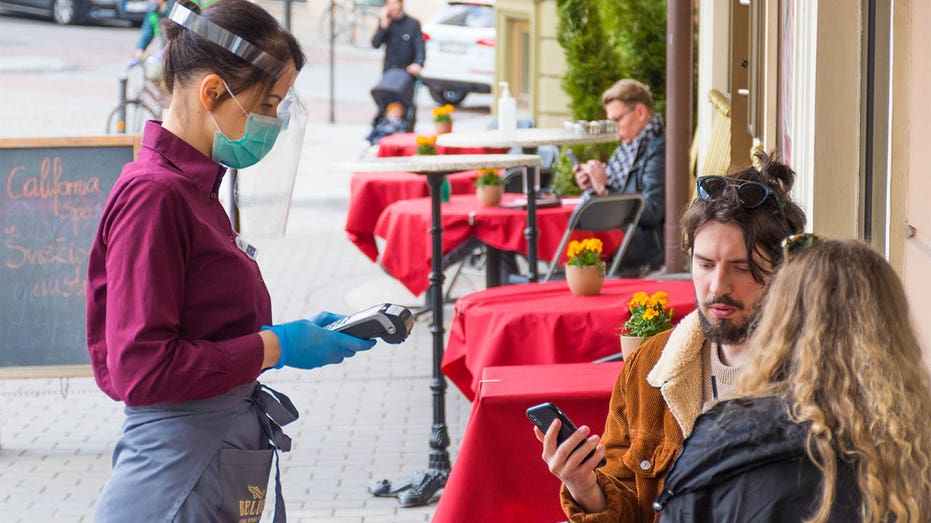High school dropout starts company that offers free delivery for restaurants
Profitboss allows restaurant owners to accept online orders without being charged a commission fee
Adam Guild, a 21-year-old high school dropout, has created a company that is rapidly changing the scope of the restaurant and food delivery industries.
Profitboss, a "free online ordering solution," as Guild calls it, not only allows restaurants to have meals delivered for free or at a very low charge compared to delivery apps like Uber Eats -- it also helps restaurant owners keep track of and utilize customer data for the benefit of their businesses.
"I've had a very weird life," Guild said. "I built my first technology project when I was 9."
Guild found his place in the tech industry while playing and creating servers on Minecraft as a teenager. He got so good at developing and managing Minecraft servers when he was a teenager -- and making money off them -- that high school and the things he learned in high school no longer appealed to him, and he dropped out.
FACEBOOK SURVEY SHOWS 15% OF SMALL BUSINESSES COLLAPSED IN PANDEMIC
He worked some odd jobs until his mom started her own high-end grooming business in a Los Angeles neighborhood that doesn't get much foot traffic. Guild saw how her business was struggling, came up with a plan and helped her develop a website that made people want to stop inside her shop.

Profitboss founder Adam Guild with Kimbal Musk (Adam Guild)
"At my mom's birthday that year -- it was me, my mom and my brother -- and I remember, at the end of dinner, she told us that this was the first year in as long as she could remember that she was really looking forward to the future again. She was reenergized by this business, and she found a purpose and passion through her team and all of her amazing customers," Guild said.
That's when he realized that what he was doing in the gaming industry was "just wasting a bunch of teenagers' time" when he would rather be making a genuine impact helping people through technology.
10,000 RESTAURANTS CLOSED OVER LAST 3 MONTHS, REPORT SAYS
Guild created Profitboss several years ago in an effort to help restaurants build in-store traffic, and it started taking off before the COVID-19 pandemic came to the U.S.
"That was going really well. I didn't need to raise money. We had hundreds of thousands of dollars in cash flow and millions of dollars in contracts with these restaurants -- both independent and large restaurants," Guild said, naming P.F. Chang's and UpperCrust as a couple of examples. But then COVID-19 hit, and the goal of the app became kind of obsolete, and the company's annual contracts were not paying.
"We had about four months of cash left. I had to lay off a bunch of people on the team, and...everything possible that could have gone wrong did go wrong. I thought I was going to lose everything," Guild said.

Shawn Shenefeld (left) and Profitboss founder Adam Guild. (Credit: Adam Guild)
So, like he did when he was helping his mom create a successful website, he went around to local restaurant owners and asked them what they wanted and needed to be more successful. Many of the owners expressed contempt over the way delivery apps seemed to be taking advantage of their businesses and costing them their profitability.
The whole goal of Profitboss is to give restaurant owners more control over their deliveries, their customer data and businesses in general -- and investors love the idea. Tinder founder Sean Rad, AngelList CEO Naval Ravikant, South African restauranteur Kimbal Musk, Redpoint Ventures and others have invested in the startup.
Some delivery apps charge restaurants upward of a 20% fee for delivery, meaning that if a customer orders a $50 meal from a restaurant, that business might have to pay around $10 for delivery "in an industry where their net margins averaged 5%," Guild explained, so they lost money on each transaction they had through those delivery platforms.
CORONAVIRUS SHUTTERS 85% OF RESTAURANTS IN SAN FRANCISCO'S BUSINESS, CULTURAL HUBS
Some apps temporarily reduced or waived their commission fees amid the pandemic, including Uber Eats, DoorDash and Grubhub.
Owners also expressed dissatisfaction with the loss of control over the customer experience using delivery apps because they did not get access to customers' data to use for themselves.
Profitboss allows restaurant owners to accept online orders without being charged a commission fee to keep their profitability and "collects and gives them access to all of their customer data," which helps owners increase sales by showing new customers recommendations and making recommendations to returning customers. Owners can also use the data for online marketing campaigns.

A waitress with a mask and clients at an outdoor restaurant (iStock)
Profitboss negotiated a $5 flat rate that covers any delivery within 5 miles of a restaurant's location, and restaurants can charge customers to cover the full cost or a portion of the cost.
"You can set it so that your customers pay a $3.00 delivery fee -- which is normal and, in fact, less than the fee they would pay on Postmates. ... So if it's $5 for within 5 miles, and let's say your customer is paying $3, then all you have to pay is $2. Suddenly, you've less than halved your delivery costs, and the customer is also saving," Guild said.
GET FOX BUSINESS ON THE GO BY CLICKING HERE
Profitboss also has partnerships with DoorDash and Postmates, which Uber purchased for $2.65 billion in July, to use their drivers without needing to give them 20% or 30% for each transaction.
Guild added that the response from restaurant owners so far has been "humbling and inspiring."
Only 43% of U.S. small business owners expect to survive through June of next year, and nearly half of U.S. small businesses are at risk of closing by the year's end. About 48% of small business owners say they are bringing in revenues under what they need to stay afloat -- a 6% increase since September, according to a Wednesday report from Alignable.
CLICK HERE TO READ MORE ON FOX BUSINESS
Many states are implementing new lockdown measures as COVID-19 cases spike across the country. States including New York, Pennsylvania and California have recently implemented new restrictions on indoor dining in an effort to curb the spread of the virus, leading many restaurants to focus solely on outdoor and delivery service until they can reopen.




















